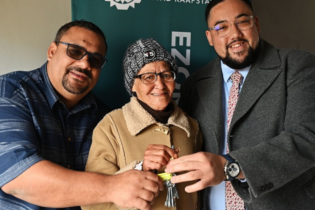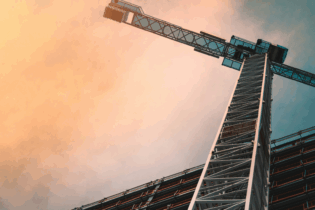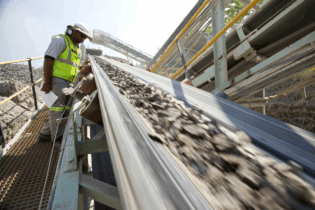The government is interested in using a private company to supply a large proportion of its low-cost housing, creating a public-private partnership with promise for South Africa.
About 12 million people in South Africa do not have adequate formal housing, according to the latest census. The government often says it has built more than three million subsidised housing units since democracy in 1994. Duro, a manufacturer of pressings, doors and related goods, published an open letter to Human Settlements Minister Tokyo Sexwale in September saying it believed the government could benefit from alternative housing strategies. Duro, founded in 1955, has experience in developing building materials. Duro CEO Greg Morris says state-built housing is usually bricks and mortar-style housing, rather than modular housing. This preference fuels the housing backlog as modular houses are quicker to build. “This system is similar in terms of costs but it is quicker to build,” he says. It takes three to five days to build a modular house. “It is also easier to transport modular housing. It does not rust. This means the housing copes better with weather conditions,” he says. Modular housing is warmer in winter. Morris says the Department of Human Settlements had read Duro’s letter in Business Day and scheduled a meeting with the company, where it expressed an interest in developing a project.“The state said there was an interest in it doing some work with us. We told them about our products and now the ball is in their court. They said they would get back to us if they wanted to take our relationship further,” he says.
Duro has recent experience in housing developments in Africa. It completed a 1 200-house project in Angola. It also developed accommodation for the All Africa Games in Mozambique last year. Duro has other products that the government already buys, including shack replacement housing, or Vela Khaya housing, which Duro launched at Park Station earlier this year. These are similar to reconstruction and development programme houses. Duro supplied the Vela Khaya products which it sourced from Vela Building Solutions, a South African company. Vela Building Solutions has seen increase strongly demand for its goods this year. It doubled its production capacity by moving to a 7 500m² new manufacturing plant in Alrode, Alberton, east of Johannesburg. Morris says some people bought Vela Khaya houses and rented them out to earn extra income. “In a crude way, some entrepreneurship has been generated from alternative low-cost housing,” he says. These houses take a few hours to build. “The state could refine whatever product we offered. My point is that the private sector is keen on helping the government bring quality housing to the masses,” he concludes. Source: BDLive





